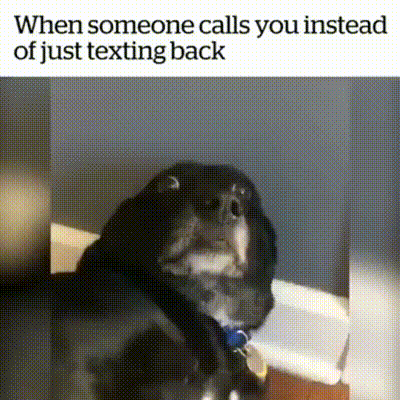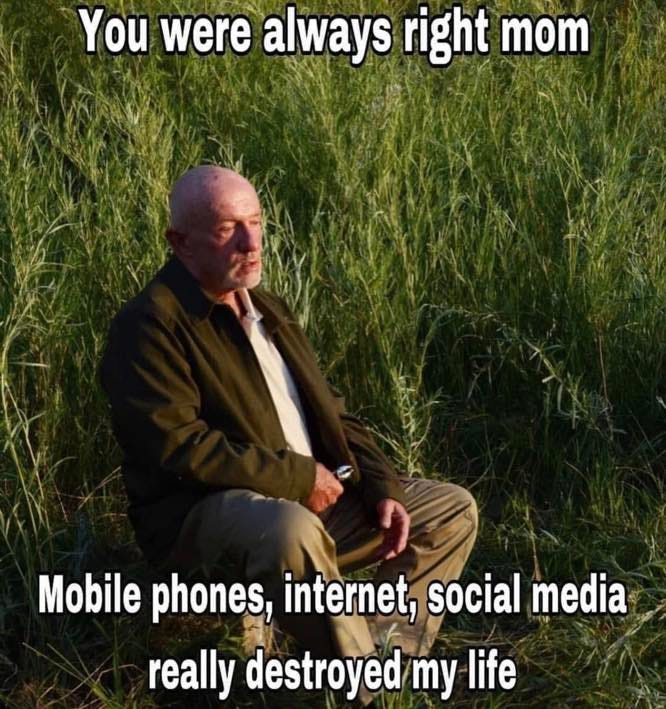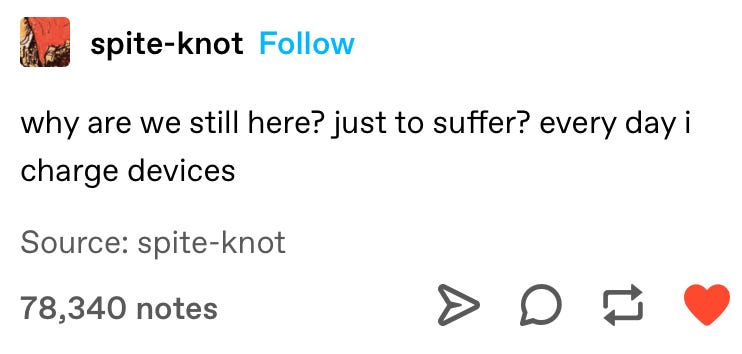I'm sorry I didn't reply, pls send help
caught in the always-on trap
I’m Tuğba, a Turkish-Greek artist living in Berlin - as slow as possible is a newsletter exploring the in-between spaces of our lives that we see but often do not notice. Interested in reading more of my work?
I’m sorry I didn’t reply to your msg. I’ve had such a crazy busy week…
I’m sorry I didn’t get back to your email, I must have missed it in my inbox…
I’m sorry I didn’t return your call, but life has been mad lately…
I’m sorry I didn’t listen to your voice message, I got distracted, and I forgot…
I’m sorry, I’m sorry, I’m sorry, because?
Because I feel overwhelmed by the ten different communication apps on my phone.
Because It's stressful to see all the unread messages, emails, voice notes, and calls.
Because I often feel guilty when I realise I haven't replied to a message from two months ago.
Because I'm annoyed that I had to disable the blue ticks so I can pretend I haven't read your message, just to buy myself more time.
Because it saddens me that I get frustrated with my friends when, despite finally replying, they immediately reply back and it is my turn again.
Because I feel ashamed when I receive a follow-up email, realising that I hadn’t replied.
Because I’m tired of living day in and day out in this vicious cycle of communication madness.
Do you feel me? Do you see yourself in this?
Many of you likely do, in one way or another.
Things need to change, as this communication overload is here to stay, and I suspect it will get even worse with more and more communication apps emerging in our lives. Time to establish digital boundaries!
I know what you’re thinking—setting boundaries in real life is probably one of the hardest things to do, and now I’m talking about setting digital boundaries as well.
It isn’t easy, but we need to start treating our mental and emotional health with the same importance as our physical health. You wouldn’t run a marathon every day, would you? So why do we subject ourselves to this communication madness for 12 hours straight?
We’ve got families, lives, jobs, hobbies, and a desperate need for downtime—because, let’s be real, we can’t always be "on." Burnout is on the rise1, and I suspect our "always on" culture is playing a starring role. How many times have you felt like you’re sprinting through a never-ending marathon, dodging unread messages from ten different apps? It’s like a digital obstacle course, and it can be downright exhausting!
After doing the math, I found that I use 13 apps just for communicating with people, including the work apps I communicate on daily: (list below2)
Here are my thoughts and things I do to combat things:
Don’t be always on.
By always being on, we never give our minds a chance to truly rest and recharge. We’re constantly in a state of low-level stress, waiting for the next notification or request.
I’ve come to terms with the fact that responding to every email and message is about as likely as winning the lottery. Communication is coming in 24/7, so things don’t stop when we sleep. We start our day with full inboxes, even after clearing most of them before bed, the next set has already arrived in the morning. It’s a constant cycle!
To manage this, I’ve started allowing myself not to reply to every message and email immediately. If my friend checks in, I’ll respond when I’ve got the mental bandwidth. As for work emails, if it’s just an FYI, I leave them in my unread folder until I have a good block of time to go through them. My strategy at work: if it truly is an emergency, I assume they’ll give me a ring. If they don’t, well, clearly, it wasn’t that urgent.
Turn off all notifications, including work-related ones.
I want to control what enters my mental space, but keeping notifications on allows anyone and anything to invade my mind.
You wouldn’t leave your front door wide open, would you? So why do we make it so easy for others to enter our precious mental space?
I've heard from friends that when they disable notifications, they start checking their messaging apps. Trust me, I’ve been there too! Adjusting to the no-notification life takes time. If things don’t improve, I suggest using the app “Opal.” It lets you block apps for a specific time or limit how often you use them. I block personal messaging apps from 7 am to noon on weekdays, but urgent calls or texts can still come through.
It’s not just a matter of discipline these days. Many apps are designed to make us feel addicted, much like slot machines. Zuckerberg has a team of hundreds working on ways to keep us hooked on their apps. So, don’t beat yourself up if you struggle with self-discipline; instead, seek out apps to support you.
Lock your phone away — just lock it!
This may sound extreme, but remember that there are jobs that prohibit using phones during working hours. In some cases, the work is so critical that employees cannot afford distractions, so they keep their phones locked. I recently met someone in one of these positions; she responds to messages only before or after work and she loves it! She couldn't stop talking about how good she felt, how much more focused she was while doing her work, and how much less scattered and exhausted she was after work.
Speaking of extremes, there was a time when I locked my personal phone in the basement for the day. Now, on busy days at work, I put it high up in my wardrobe, so I need a chair to get it back. These extra hurdles usually stop me from grabbing my phone.
Delete apps from your phone — yes, you read it right.
I delete Instagram and only download it when I need to use it. This extra step works wonders. I also ask my friends to message me on WhatsApp instead of Instagram for urgent things. This way, I can funnel most of my conversations into one app.
This year, I took the plunge and removed almost all apps from my home screen — yes, you heard that right! It might sound a bit bonkers, but let me tell you, it was the best decision ever. Now, my phone is a minimalist masterpiece, and the apps are still around; I just have to play a fun game of hide-and-seek in the app library. The only apps I’ve kept on my home screen are my trusty weather app, calendar, and to-do list.
Archive group chats.
I know, I know. Why don’t you just leave the group chats you are thinking? I could leave the group chats, but I prefer not to remove myself entirely since I want to stay updated on my own terms. I find it overwhelming when every message from others pushes the group chat to the top of my list, demanding my attention when I can’t give it. To manage this, I’ve started archiving the group chats on WhatsApp. I check the archive whenever I have the time and energy to catch up on the messages. I might check in once a month for larger groups, while I look more often for group chats with friends.
Be intentional. No more "Good Mornings” (unless it is your crush and you just started dating 😉)
Next time, you send a message or email, do so deliberately. Is this message really necessary, or can it wait until you meet in person? I mean it! We don’t have to message every day: “Good Morning. How are you?” “Thanks. I’m as well as I was in your last ten good morning messages.
Half-joke aside, perhaps agree to have a monthly call with your friend who lives in another country. I spoke to my best friend who lives in Luxemburg four hours the other day. And no, I don’t love phone calls I’m generation messaging, and I love memes about “when someone calls you.”
In order to reduce the messaging madness, I’ve decided to trade in my endless texting for some good old-fashioned phone calls with some friends. Honestly, a call with a friend feels way more satisfying than playing message ping-pong for weeks and racking up a guilt trip in the process. There’s only so long you can keep your brain busy with the thought, “Oops, I still owe them a reply!”
Last but not least, simply go offline. As easy (or difficult) as that!
It’s a no-brainer, but how often do you actually do it?
I genuinely believe that turning our phones off completely does wonders for our mental state. When the phone is off, there’s no lingering temptation to sneak a peek — absolute bliss. Occasionally, I embark on a digital detox escape where I shut down my phone for a few hours or even a whole day. I also try and turn off my phone when I’m home between 8 and 9 pm most evenings, and I switch it back on after 9 am at the earliest. I use an actual alarm clock, and I keep my phone hidden under the sofa while it charges.
I know being totally offline makes some people nervous — what if something urgent happens overnight? Well, I trust that my family and friends will call the police or an ambulance. There’s not much I can do in an emergency, especially at night.
Finally…
Most people will be understanding and even find it inspiring. When I share the extreme things I do, my friends often respond by saying, “That’s great! I wish I could do that. You are so disciplined.” The truth is, I’m not! Fighting back against the tech giants has become nearly impossible. I’m easily distracted and overwhelmed, but I have developed a strong awareness of what serves me well and what doesn’t.
I would love to hear how many communication apps you use daily and whether you already have some digital boundaries in place?
Take care!
Your friend Tuğba
P.S. I'm working on an ebook about the tools I use for more focused work—a little toolkit! More details coming soon. Available to all my readers!
How can I show some love for what you do?
as slow as possible is a free, hand-crafted publication that relies entirely on your support - like, comment, restack and recommend. It always brightens my day to hear from you 🖤
Burnout is still on the rise globally, with 42% (2023) of the workforce reporting it—a slight uptick (2% rise) from the previous quarter and an all-time high since May 2021, when Future Forum first started measuring employee burnout.
WhatsApp, Telegram, Signal, Facebook Messenger, Instagram DM, personal emails, work email, work Slack, Google Meet, LinkedIn DM, Substack DM, personal phone calls, work phone calls - I will exclude SMS messages since not sent daily.







I feel like we also need to bring back the concept of having a designated place in the house where we used the phone. I still remember when landlines would have a little chair and coffee table next to it for comfortable chatting. Maybe bringing this back could also help. So it’d be like: having a space in the house to send messages, reply to messages, do a little intentional scrolling. I think the fact our phones are no longer landlines but actually mobile phones attached to our hands makes us feel like we need to be checking notifications all the time.
Beautiful piece Tuğba !